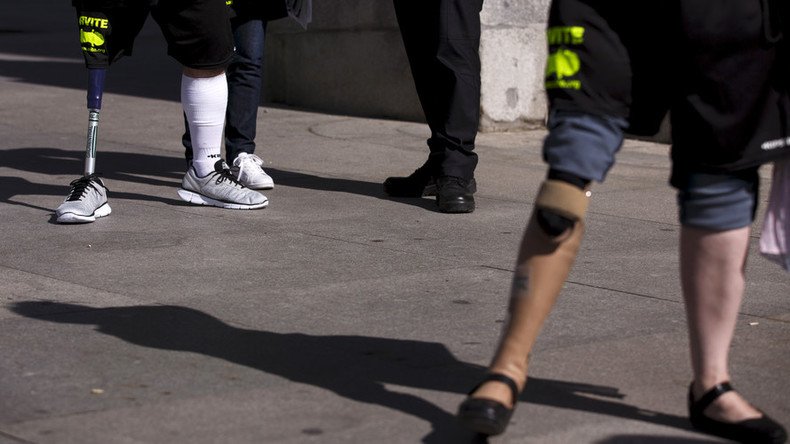Thalidomide victims may surpass 10,000 people in the UK - far more than the 531 who have received compensation for the notorious drug, which causes severe birth defects and death in new-born babies.
Former director of the Thalidomide Trust Martin Johnson claims many families would not have known their babies had been affected by the drug.
Speaking to the Sunday Times, Johnson said it has taken half a century for the true scale of the thalidomide scandal to be revealed.
He said there had been no criminal prosecutions and that the Conservative government of the time refused to conduct a public inquiry.
“Virtually none of those who suffered miscarriages would have known and that would have applied to around 90 percent of those suffering stillbirths. The babies were hidden and there was no birth defects register,” Johnson said.
He estimates that about 6,000 babies were miscarried, 2,000 were stillborn and 2,000 died in infancy. Johnson’s figures are based on comparisons with a chemically similar drug to thalidomide and with many small-scale studies.
Only thalidomide victims who survived beyond infancy received compensation.
“There was no criminal trial in Britain and Enoch Powell (health minister between 1960 and 1963) flatly refused a public inquiry,” Johnson said.
Some 531 people, 64 of whom have since died, have been helped by the Thalidomide Trust. Current beneficiaries are between 51 and 57 years old. Sixteen people have reportedly contacted the trust since January to seek confirmation they were affected by the drug.
Deborah Jack, the trust’s director, believes they may have been encouraged to come forward after hearing about thalidomide through the documentary Attacking the Devi and an episode of the BBC1 Drama Call the Midwife, which focused on the issue.
Grünenthal GmbH, the German drug company that developed thalidomide, asked for the drug victims’ forgiveness in 2012. Many survivors and their families have rejected the apology.
The drug was sold in nearly 50 countries under various trademarks from 1957 to 1961 as a tranquilizer and painkiller. It was particularly popular among pregnant women as an effective remedy for morning sickness.
In 1961, Australian obstetrician William McBride and German pediatrician Widukind Lenz revealed research proving the drug caused birth defects.
As a result of the prenatal use of thalidomide, more than 10,000 babies in 46 countries (some estimates put the number as high as 20,000) were born with shortened or missing limbs and other deformities, which were fatal in most cases.
The drug was immediately taken off the shelves – the last batch in Canada in early 1962. Thousands of those who survived thalidomide-related birth defects are still alive, and coping with lifelong disabilities.
For decades, Grünenthal denied any liability, claiming it had conducted the clinical trials required at the time.

